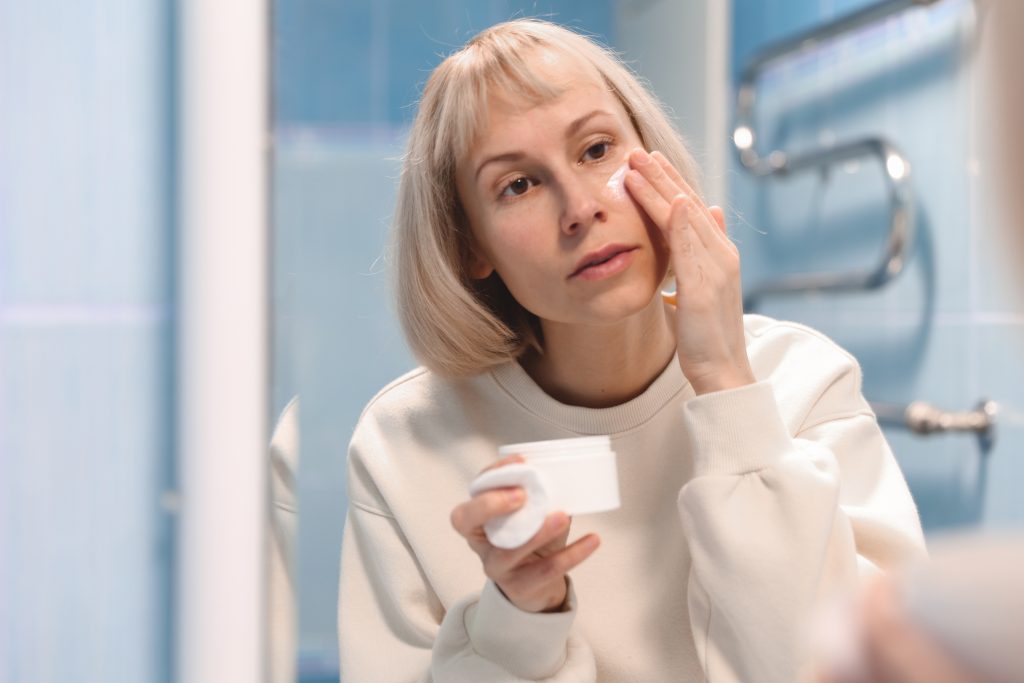Sensitive skin can be a difficult thing to deal with. If you have sensitive skin, you know that even the most gentle products can sometimes cause irritation or redness. But don’t despair! There are plenty of ways to manage sensitive skin and keep it looking and feeling its best.
So if you were wondering how to take care of sensitive skin, here are eight updated and expert-backed tips for you:
1. Use products that are specifically designed for sensitive skin.
There are a number of skincare lines that offer products specifically for people with sensitive skin. These products (which often come under the umbrella of clean beauty) are often more expensive than regular skincare products, but they’re worth the investment if you have sensitive skin. Don’t want to spend extra? Don’t fret and keep reading to find other ways to protect and pamper your sensitive skin.
2. Be gentle with your skin.
When you’re washing your face or applying skincare products, be sure to use gentle, circular motions. Avoid scrubbing your skin, which can irritate it. Don’t rub your skin dry using a towel — pat dry! Also avoid using hot water, as it can strip the natural oils from your skin. Stick to lukewarm water when cleansing your face.
Additionally, avoid touching your skin whenever possible. The more you touch your skin, the more aggravated it will be. It goes without saying that you shouldn’t pick or scratch at your skin either! Being gentle with your skin all the time should be a part of your daily sensitive skincare routine.
3. Use sunscreen, always.
You may think that you don’t need to wear sunscreen if you have sensitive skin (maybe following the logic that bare skin is the best…), but that’s not true! In fact, it’s even more important to wear sunscreen if you have sensitive skin because the sun can seriously damage your body’s largest organ.
Look for a sunscreen that has an SPF of 30 or higher and is labeled “broad-spectrum.” And be sure to reapply every two hours, or more often if you’re swimming or sweating.
4. Choose non-irritating makeup products.
When you have sensitive skin, it’s important to be careful about the makeup products you use. Make sure to choose products that are non-comedogenic and hypoallergenic. You might also want to consider using mineral makeup, which is less likely to cause irritation.
Don’t share your makeup with anyone else and don’t use makeup that belongs to others! Cross-contamination is real and a nightmare for those with sensitive skin.
Whenever possible, avoid wearing makeup so that your skin can breathe. And if you do wear makeup, make sure to remove it thoroughly at the end of the day!
5. Use natural skincare products.
There are a number of natural skincare products on the market that are designed for people with sensitive skin. These products often contain ingredients like chamomile, CBD, and lavender, which can help soothe your skin. Check out INDICA Skincare if you’re interested in natural skincare products that contain CBD.
6. Avoid harsh chemicals.
Many skincare products contain harsh chemicals that can irritate sensitive skin. Look for products that are labeled “hypoallergenic,” “dermatologist-tested,” “dermatologist-approved,” or “toxin-free.” This skincare tip aligns with the previous one — it’s best to go for natural skincare products that don’t contain harsh chemicals, fragrances, parabens, sulfates, and silicones.
Here’s an article that explores 5 ingredients that you should avoid in skincare products.
7. Moisturize, moisturize, moisturize.
Sensitive skin is often dry, so it’s important to moisturize regularly. Even if your skin isn’t dry, it’s important to keep it moisturized so that the skin’s natural barrier is maintained. Yes, you need to moisturize even if you have oily skin — your skin will produce less oil when it is hydrated!
Look for a moisturizer that’s labeled “non-comedogenic” or “oil-free,” which means it won’t clog your pores. Make sure your moisturizer doesn’t have fragrances, alcohols, preservatives, sulfates, or dyes. If you’re worried about choosing the right moisturizer for sensitive skin, check out the next tip!
8. Try baby skincare and bath products.
It’s a good idea to use baby skincare and bath products if you have sensitive skin. Since babies have very delicate skin that is thinner than that of an adult, products made for them are generally very gentle, chemical-free, and hypoallergenic.
Bonus tip: use natural baby skincare and bath products to protect your skin even more and pamper it with natural goodness. For example, you can use Nature’s Baby Organics’ baby products (from body washes to moisturizers to detanglers) which are USDA Certified organic, dermatologist approved, hypoallergenic, and suitable for sensitive skin of all ages.
Following these essential but easy skincare tips, you can help keep your sensitive skin looking and feeling its best. And of course, do consult a dermatologist if you are struggling with skin problems!
